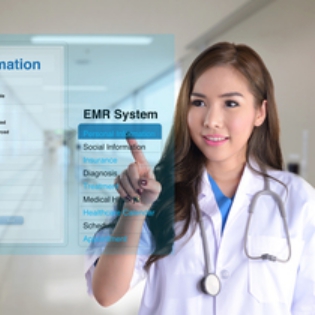The State Of Mobile Healthcare
January 16, 2019

Everything is moving to the smartphone. Movies, news, social media, even business; so it makes sense that healthcare organizations make use of mobile applications that can improve the efficiency and efficacy of their operations.
It was recently announced that Apple is developing a method to move your patients’ electronic health records (EHC) to your phone. Many major hospitals like Johns Hopkins in Baltimore and Cedars-Sinai in Los Angeles are helping Apple in the effort. This is a major development in the mobile healthcare technology world, if for no other reason but that Apple is attached to it as well as a number of the most prestigious hospitals in the country.
What it looks like
For someone who visits doctors multiple times a year, it involves a lot of redundant and repeated questions that needn’t even be asked. If the patient had a way to send their doctor their records from past visits then that would save everyone time. There is no easier theoretical way to do this than with smartphones. With one app, the doctor would be able to see allergies, current medications, immunizations and current medical conditions. They would also be able to neatly organize the information they learn from lab results and vitals scanning.
Other healthcare services apps of course exist, including some that offer the very same services that Apple’s planned application will. Here’s the difference: A lot of these existing apps don’t have the same kind of support and technological firepower that Apple does, so many of these healthcare apps currently on the market are buggy or are very limited in what they can do.
This won’t be the case for long. 2019 will be the year of mobile business, and healthcare will definitely be one of the leading industries in that regard. Apple’s app will just open the floodgates for higher quality and better developed mobile systems.
Concerns
Even though many people assume browsing the internet on the phone is safer than on a desktop, this is not true. Viruses, malware and spam exist on smartphones – yes, even iPhones – and they can be just as devastating as a data breach on your work computer.
Naturally, having any confidential medical information accessible on a mobile app is going to raise concerns, and if 2018 is going to be the year of mobile business that means that 2018 will also have to be the year of mobile cyber security.
Luckily there are a number of services you can take advantage of to make your phone security just as strong as your computer’s security systems.
If you’ve read any of our other blogs, you’ve probably heard of two-factor authentication and data encryption by now. These services exist for mobile devices and are just as effective.
If you are interested in learning about these mobile services, read about them here or contact TOSS C3 24/7 by calling us at 1-888-884-8677.

Subscribe now and stay up to date with News, Tips, Events, Cybersecurity, Cloud and Data Compliance.